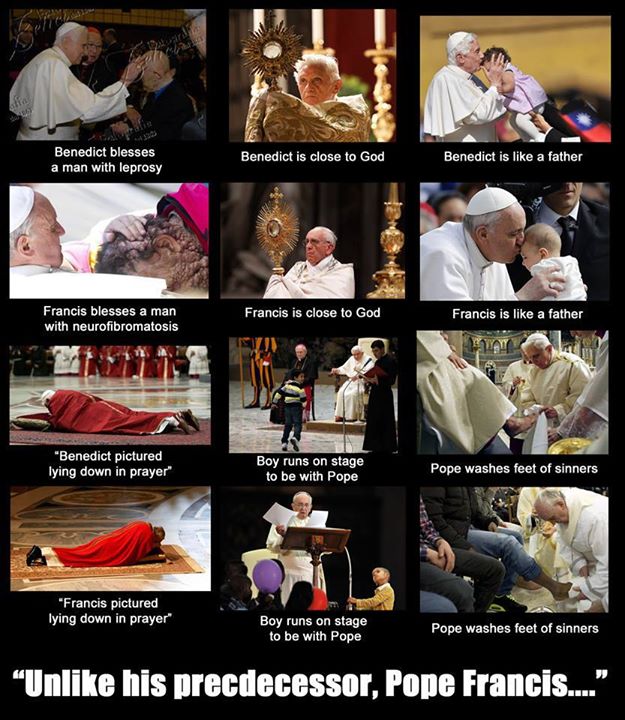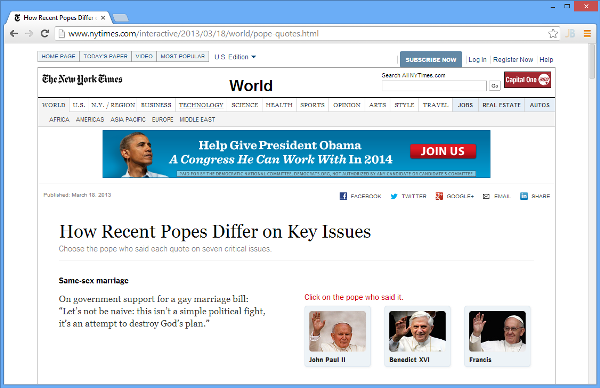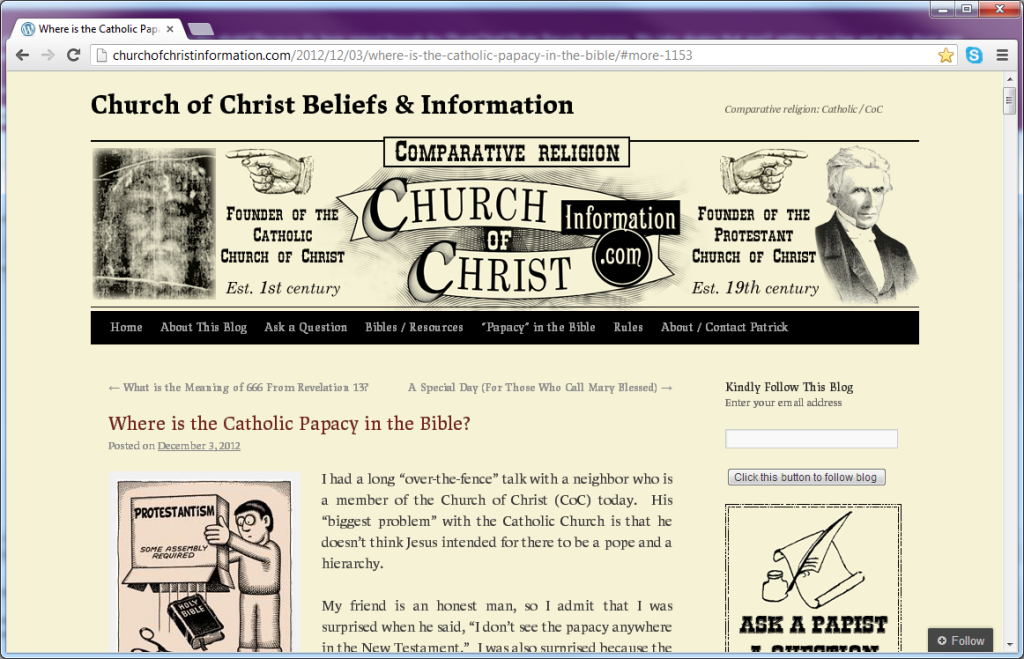August 21, Twenty-First Sunday in Ordinary Time
In this week’s readings we hear the passages of Scripture which have been used by the Church throughout the centuries to defend the Primacy of Peter and the authority of the Pope. Our Gospel Reading, in particularly, was cited at the First Vatican Council in the document “Pastor aeternus”.
I’m going to do my best this week to ensure that these notes remain a Scripture commentary, rather than an apologetic defense of the Papacy. I may well write a more apologetic piece later in the week. 😉
“When the builders laid the foundation of the temple of the LORD, the priests in their vestments and with trumpets, and the Levites (the sons of Asaph) with cymbals, took their places to praise the LORD, as prescribed by David king of Israel.” – Ezekiel 3:10
Reading I: Is 22:19-23
The First Reading this week is our hermetical “key” for understanding the Gospel Reading.
In this section of the prophet Isaiah we hear how Shebna, the Chief Steward of the Kingdom, was replaced by a man called Eliakim. Understanding this ministerial office is critical to our understanding of what Jesus says in the Gospel which, in turn, is paramount to our understanding of the Papacy.
In this passage we see foreshadowed a man on whom God would bestow His blessing. This man would exercise authority on behalf of the King in the administration of the Kingdom. He would be a secured feature, a father to the people and an honoured member of the family of God…
Thus says the LORD to Shebna, master of the palace: “I will thrust you from your office and pull you down from your station. On that day I will summon my servant Eliakim, son of Hilkiah; I will clothe him with your robe, and gird him with your sash, and give over to him your authority. He shall be a father to the inhabitants of Jerusalem, and to the house of Judah. I will place the key of the House of David on Eliakim’s shoulder; when he opens, no one shall shut when he shuts, no one shall open. I will fix him like a peg in a sure spot, to be a place of honor for his family.”
Questions:
- What is happening here in Isaiah?
- Who is Shebna?
- What kind of job did he have?
- Who is Eliakim?
- What symbol of authority is Eliakim given?
- What does he mean when he says “when he opens, no one shall shut when he shuts, no one shall open”?
Commentary:
“Thus says the LORD to Shebna, master of the palace: ‘I will thrust you from your office…'”
Through the Prophet Isaiah, God “fires” Shebna from his position as “master of the palace”. Up until this point, Sheba was the Chief Steward, the Prime Minister in the Davidic Kingdom. The Master of the Palace was not the one ultimately in charge, the King was, but the Prime Minister exercised the King’s authority in the administration and running of the Kingdom. This is the same kind of post that Joseph (son of Jacob) had when he lived in Egypt.
Read more


 I see white smoke at the Vatican…
I see white smoke at the Vatican… We live in rare times. Pope Benedict has just announced that he will be stepping down as Pope on February 28th. In the 2,000 year history of the Church there have only been three other Popes who have done this. Here is the text of his announcement to the Cardinals:
We live in rare times. Pope Benedict has just announced that he will be stepping down as Pope on February 28th. In the 2,000 year history of the Church there have only been three other Popes who have done this. Here is the text of his announcement to the Cardinals: